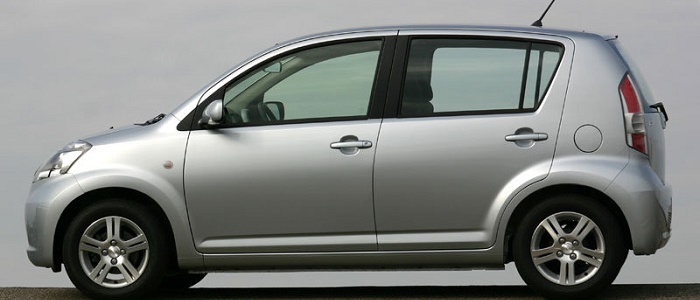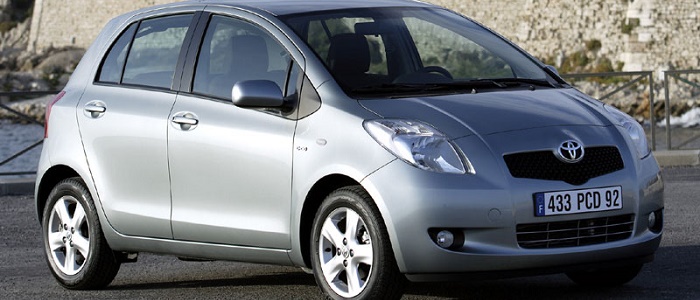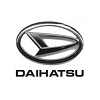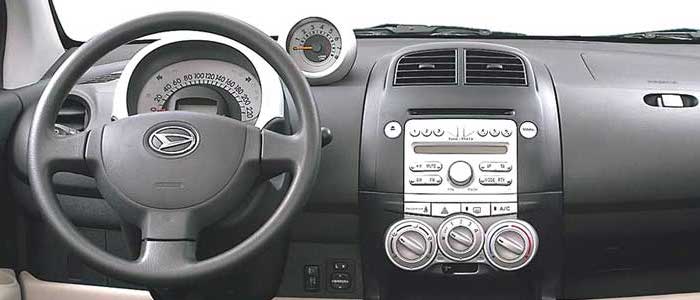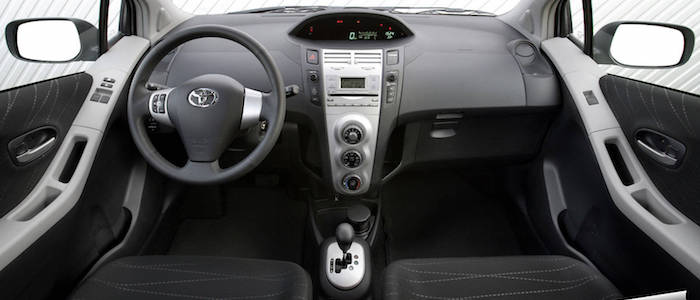Compare two cars
Compare any two cars and get our Virtual Adviser™ opinion
Dimensons & Outlines
Check vehicle history
Engine
Performance (manual gearbox)
Performance (automatic gearbox)
Expenses
Virtual Adviser's™ opinion
Well, these are two pretty similar cars we have here! It's only details that could potentially make the difference. Considering they both belong to the city car segment and utilize the same 5-door hatchback body style and the front wheel drive system, it all comes up to the specific petrol engine choice they offer. Both the engines are Daihatsu-engineered . The first one has a 3-cylinder, 12-valves 71hp unit, while the other one gets its power and torque from a 3-cylinder, 12-valves 69hp one.
SafetyThe first thing to look into here would be the results from European New Car Assessment Programme (Euro NCAP) tests performed on the two cars. Good thing is that both vehicles got tested, with the Toyota being a slightly better choice apparently. Still, apart from the official crash test results there are other things we need to be aware of. Both vehicles belong to the city car segment, which is generally not a very good thing safety-wise, but it doesn't do much to help us decide between the two. On the other hand, taking kerb weight as an important factor into account, Yaris offers a considerable difference of 10% more metal.
ReliabilityReliability is not the best thing to consider on the make level, but it is worth mentioning that Daihatsu does have a slight advantage, when all the models are taken into account. That's the official data, while our visitors describe reliability of Daihatsu with an average rating of 4.2, and models under the Toyota badge with 4.6 out of 5. Independent research findings rank Sirion as average reliability-wise, and Yaris is more or less at the same level.That apart, owners of different cars powered by the same engine as Sirion rank it on average as 1.8, while the one under the competitor's bonnet gets 4.5 out of 5.
Performance & Fuel economyDaihatsu is undoubtly more agile, reaching 100km/h in 1.8 seconds less than its competitor. In addition to that it accelerates all the way to 160 kilometers per hour, 5km/h more than the other car. When it comes to fuel economy things look pretty much the same for both cars, averaging around 5.2 liters of fuel per 100 kilometers (54 mpg), in combined cycle.
Verdict
Toyota appears just a bit more reliable, although the difference is truly marginal. The most important thing when deciding between any two vehicles should always be safety, both passive and active. In my opinion, everything taken into account, Yaris beats the other contender by far, making it the best choice without even considering other things. From there things take a different direction, with Daihatsu outracing its opponent in any situation possible, making it better choice for boy racers. To make things even better, it consumps less fuel! At the end, as much as I'd like to give you a winner here, it's simply a pure tie if you ask me. Anyway, that's the most objective conclusion I could've came up with and it's based solely on the information found on this website. Aspects such as design, practicality, brand value and driving experience are there for you to measure them out. In case you have two minutes to spare I invite you to define your needs, desires and budget and see which car would be chosen by the virtual adviser™, among more than 12.000 different ones in our database.























